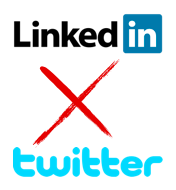 CSRA milestones reflects on my first ten years of experiential social media, seen through the eyes of clients I’ve served. I’ll share what I learned about what outcomes we got in each engagement as well as how it happened that I developed and pioneered experiential, which if a repeatable process for developing trust and profit at scale. CSRA milestones reflects on my first ten years of experiential social media, seen through the eyes of clients I’ve served. I’ll share what I learned about what outcomes we got in each engagement as well as how it happened that I developed and pioneered experiential, which if a repeatable process for developing trust and profit at scale.
If you’d like to watch this post instead, just click the thumbnail button.
[…]
 Putnam Investments has been a financial services social business pioneer for many years, so here I’ll summarize their pioneering initiatives that show that regulated financial services firms can communicate with clients and prospects in many-to-many social venues without going astray. True, it helps having a CEO that was the first CEO from a mutual funds firm on Twitter. Putnam Investments has been a financial services social business pioneer for many years, so here I’ll summarize their pioneering initiatives that show that regulated financial services firms can communicate with clients and prospects in many-to-many social venues without going astray. True, it helps having a CEO that was the first CEO from a mutual funds firm on Twitter.
The point remains, imagination and inertia are preventing financial services firms from engaging with clients and prospects in digital social venues, not regulators. Here’s how it’s done.
[…]
 Bill Snyder at Infoworld posted some amazing statistics that support the end of social media as we know it, which I predicted in 2009. Marketing and public relations have been losing influence for years because they are impersonal, and people prefer personalized interactions (deep dive here), so marketers and their vendors are grasping at straws. In this context, “social media” has generally been practiced as a shallow promotional activity, and my premise in predicting its demise is that the true potential of social technologies is creating and maintaining relationships, which are based on personalized attention and caring. Bill Snyder at Infoworld posted some amazing statistics that support the end of social media as we know it, which I predicted in 2009. Marketing and public relations have been losing influence for years because they are impersonal, and people prefer personalized interactions (deep dive here), so marketers and their vendors are grasping at straws. In this context, “social media” has generally been practiced as a shallow promotional activity, and my premise in predicting its demise is that the true potential of social technologies is creating and maintaining relationships, which are based on personalized attention and caring.
[…]
 This week Twitter and LinkedIn canceled their agreement for easy cross-posting, which begot numerous indignant comments from people who seemed to have forgotten that they were using free infrastructure. Social business platforms are built and managed by venture-backed firms that need to execute on evolving business models, so we can all expect sudden changes from any and all. However, with some foresight and preparation you and your firm can minimize disruptions, which we’ll cover here. Even better, the LinkedIn-Twitter dustup provides strategic insights into how to operate within the digital social ecosystem, and we’ll address those, too. This week Twitter and LinkedIn canceled their agreement for easy cross-posting, which begot numerous indignant comments from people who seemed to have forgotten that they were using free infrastructure. Social business platforms are built and managed by venture-backed firms that need to execute on evolving business models, so we can all expect sudden changes from any and all. However, with some foresight and preparation you and your firm can minimize disruptions, which we’ll cover here. Even better, the LinkedIn-Twitter dustup provides strategic insights into how to operate within the digital social ecosystem, and we’ll address those, too.
[…]
Executives need to get on Twitter so they can understand the potential and the threat to their communications with stakeholders. The problem is, the value proposition isn’t clear, and executives perceive it takes too much time to learn. These free online courses fill that gap. […]
How to think about using Facebook, LinkedIn and Twitter for business.. brief comparisons of Facebook with LinkedIn and Twitter from a business perspective […]
How to avoid lame updates on Facebook – debunking Wall Street Journal article […]
Why Twitter was one of the Web 2.0 innovations of the decade.. analysis and conclusions about Twitter’s value proposition for changing the economics of the Relationship Life Cycle […]
How to support your job search or fundraising by blogging and tweeting on Twitter… plus how to engage hyper-connected executives to remember you and help you more […]
 Personally and professionally, I find posts that “compare” Twitter and Facebook as if they were competitors largely off-base and useless, but I weighed in on this one on Techcrunch. My thesis is that these venues only “compete” if you care about fickle mass adoption and don’t care about each site’s underlying value proposition. Facebook and Twitter are very different, so comparing them doesn’t make much sense in most cases. In 2009, however, mass media in the United States especially was having a field day talking about Twitter “knocking Facebook off its pedestal,” which was silly. Here’s Techcrunch’s take on it. My response and thoughts are below. Personally and professionally, I find posts that “compare” Twitter and Facebook as if they were competitors largely off-base and useless, but I weighed in on this one on Techcrunch. My thesis is that these venues only “compete” if you care about fickle mass adoption and don’t care about each site’s underlying value proposition. Facebook and Twitter are very different, so comparing them doesn’t make much sense in most cases. In 2009, however, mass media in the United States especially was having a field day talking about Twitter “knocking Facebook off its pedestal,” which was silly. Here’s Techcrunch’s take on it. My response and thoughts are below.
[…]
|
|
 CSRA milestones reflects on my first ten years of experiential social media, seen through the eyes of clients I’ve served. I’ll share what I learned about what outcomes we got in each engagement as well as how it happened that I developed and pioneered experiential, which if a repeatable process for developing trust and profit at scale.
CSRA milestones reflects on my first ten years of experiential social media, seen through the eyes of clients I’ve served. I’ll share what I learned about what outcomes we got in each engagement as well as how it happened that I developed and pioneered experiential, which if a repeatable process for developing trust and profit at scale.
 Bill Snyder at Infoworld posted some amazing statistics that support the end of social media as we know it, which I predicted in 2009. Marketing and public relations have been losing influence for years because they are impersonal, and people prefer personalized interactions (deep dive here), so marketers and their vendors are grasping at straws. In this context, “social media” has generally been practiced as a shallow promotional activity, and my premise in predicting its demise is that the true potential of social technologies is creating and maintaining relationships, which are based on personalized attention and caring.
Bill Snyder at Infoworld posted some amazing statistics that support the end of social media as we know it, which I predicted in 2009. Marketing and public relations have been losing influence for years because they are impersonal, and people prefer personalized interactions (deep dive here), so marketers and their vendors are grasping at straws. In this context, “social media” has generally been practiced as a shallow promotional activity, and my premise in predicting its demise is that the true potential of social technologies is creating and maintaining relationships, which are based on personalized attention and caring.  This week Twitter and LinkedIn canceled their agreement for easy cross-posting, which begot numerous indignant comments from people who seemed to have forgotten that they were using free infrastructure. Social business platforms are built and managed by venture-backed firms that need to execute on evolving business models, so we can all expect sudden changes from any and all. However, with some foresight and preparation you and your firm can minimize disruptions, which we’ll cover here. Even better, the LinkedIn-Twitter dustup provides strategic insights into how to operate within the digital social ecosystem, and we’ll address those, too.
This week Twitter and LinkedIn canceled their agreement for easy cross-posting, which begot numerous indignant comments from people who seemed to have forgotten that they were using free infrastructure. Social business platforms are built and managed by venture-backed firms that need to execute on evolving business models, so we can all expect sudden changes from any and all. However, with some foresight and preparation you and your firm can minimize disruptions, which we’ll cover here. Even better, the LinkedIn-Twitter dustup provides strategic insights into how to operate within the digital social ecosystem, and we’ll address those, too.